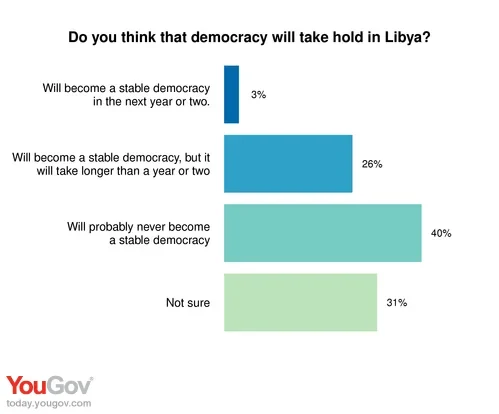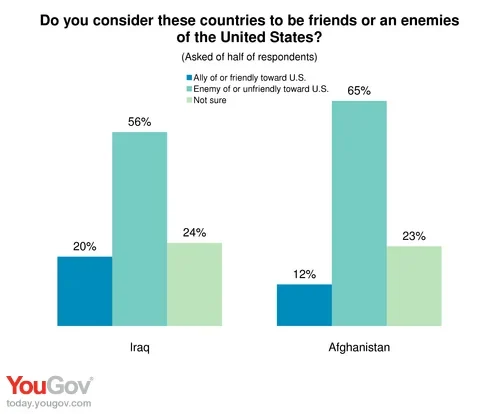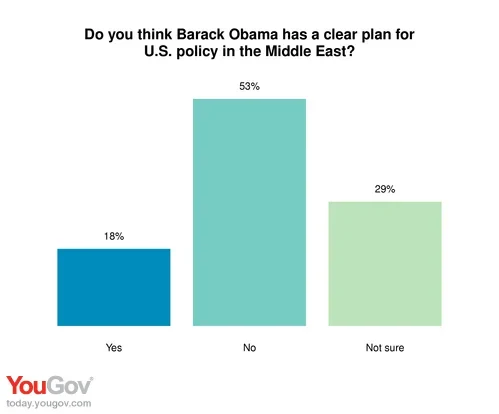Despite the Libyan rebel capture of Tripoli and Muammar Gaddafi removal from power, Americans are pessimistic about the eventual development of a stable democracy in Libya. By 40% to 29%, respondents in the latest Economist/YouGov Poll don’t think a stable democracy will develop there. And those who think it will expect it to take a long time.

Americans are generally pessimistic about democratic development in the Middle East. They don’t think it will happen in either Afghanistan or Iraq, countries in which the U.S. has been trying to develop democracy for years. They don’t expect it in Tunisia or Syria, countries where there have been protests against autocratic rulers this year. Only for Egypt, where protests successfully chased Hosni Mubarak from power (and in which the interim government put him on trial), is there hope.
Do you think that democracy will take hold in the following countries?
| Egypt | Tunisia | Iraq | Syria | Afghanistan | |
|---|---|---|---|---|---|
Will become a stable democracy | 9% | 3% | 6% | 2% | 3% |
Will become a stable democracy, | 33% | 19% | 24% | 18% | 14% |
Will probably never become a | 29% | 32% | 44% | 43% | 58% |
Americans think most of the people in these countries think unfavorably about the United States, and (again excepting Egypt) see these countries as either unfriendly to the U.S. or even enemies of America. This is particularly striking in the cases of Iraq and Afghanistan. Only 20% view Iraq as friendly and even fewer — just 12% – say Afghanistan is.

The public has little confidence in the President’s strategy for dealing with the Mid-dle East. They agree that the U.S. was right to join forces with Great Britain and France to give military assistance to the rebels in Libya, but they divide closely when they evaluate Barack Obama’s handling of those uprisings. And only 18% believe the President has a clear plan for U.S. Middle East policy. 53% say he does not.

Photo source: Press Association






